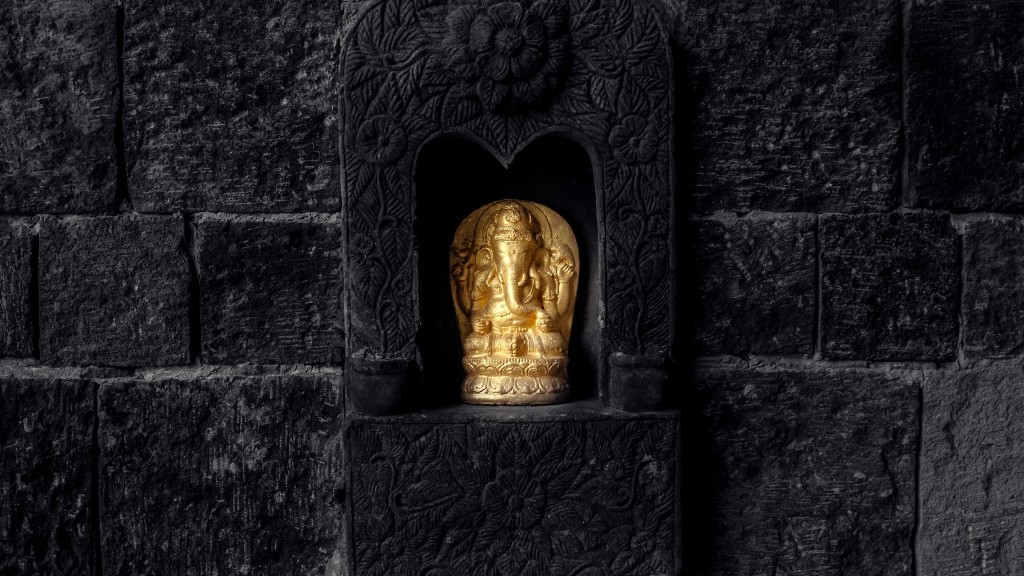Definition of Hinduism
Hinduism is the oldest religion in the world and the third largest. It has millions of followers in India and around the world, who are known as Hindus. Hinduism is very complex and has many different levels of belief. Hindus may practice traditional rituals and prayers, or they may practice modern forms of meditation and yoga. Hindu philosophies also include belief in reincarnation, karma and samsara.
Hinduism Beliefs
Hindus believe in the concept of Brahman – the ultimate cosmic spirit or divine force that permeates all of existence. Brahman is thought to be the source of all creation, existence and consciousness. Hindus also believe in a diversity of gods and goddesses, and believe in dharma – the principles of right action. Hindus believe in karma – the law of cause and effect, and in reincarnation.
Followers of Hinduism
Followers of Hinduism are known as Hindus. Hindus usually live in India or in countries where Hinduism is the primary religion, such as Nepal and Sri Lanka. Hindus make up a large portion of the population in India, Nepal, Sri Lanka and other countries in South and Southeast Asia. According to the 2011 census of India, Hinduism is the largest religion in India, with 79.8% of the population being Hindu.
Worship and Rituals of Hindus
Hindus have many rituals and practices that have been part of their culture for centuries. Hindus generally believe in one or more of the major gods in the Hindu pantheon – such as Brahma, Vishnu and Shiva. Hindus follow many religious customs and traditions, such as worshiping the gods, honoring their ancestors, performing religious ceremonies on special occasions, and observing festivals and holidays.
Hindu Texts
Hinduism is based on ancient texts, such as the Vedas, Upanishads and other sacred Hindu texts. The Vedas are the oldest works of Hindu scripture, which contain hymns, formulas and rituals. The Upanishads are philosophical texts which discuss the fundamental questions of life and existence.
Hindu Culture
Hinduism has many customs and traditions that are followed and practiced by Hindus. These include the sacred thread ceremony, which is the initiatory ceremony into Hinduism,and the practice of wearing sacred threads (pundra). Hindus also practice yoga and meditation for spiritual growth, as well as many other traditions.
Symbols and Practices
Hindus have many symbols which represent different aspects of their religion and culture. The most common symbol is the Om symbol – a symbol of peace, unity and spirituality. Other symbols include the Swastika, a symbol of good luck, and the Trishul, a symbol of protection. Hindus also practice Pooja, a ritual of worship of the gods.
Modern Hinduism
Today, Hinduism is the world’s third largest religion, with over 1.2 billion adherents. Hinduism has a long history and has been embraced by many different cultures, giving it a global reach. Hinduism is practiced in many different forms, and traditional, modern and folk practices all can be found in Hinduism.
Hindu Beliefs and Teachings
Hinduism is based on the dualistic principles of Dharma and Moksha – the path to right action and spiritual liberation. Hindus also believe in a cycle of birth, death and rebirth (samsara) and the concept of karma, where one’s actions in this life will have an effect on their next life. Hindus also believe in the four Purushartha – Dharma, Artha, Kama, Moksha – the four goals of human life.
Understanding Hinduism
Understanding Hinduism requires a deep understanding of the Vedic texts, scriptures and philosophy. Hindus generally practice meditation and yoga in order to cultivate a deeper connection to the divine. Hindus believe in the power of the divine and often seek guidance from divine sources in their lives. Hindus also have sacred rituals and practices that are performed regularly in order to honor the gods and goddesses.
Living by Hindu Principles
Living by Hindu principles means living one’s life in accordance with Dharma – living in harmony with nature and the universe. Living by Hindu principles also means performing acts of charity, generosity and kindness. Hindus believe in the power of prayer and in the power of divine energies, and seek to cultivate a harmonious relationship with the divine.
Hindus and Other Faiths
Hindus have a long history of living peacefully with other religions, and Hinduism has many elements that are shared with other faiths. Hindus often engage in interfaith dialogue and are open to learning from and understanding other religions. Hindus respect the religious beliefs of others and do not seek to convert others to their own faith.
Evolution of Hindu Thought
Hindu thought has evolved over time in response to changing environments and political pressures. Hinduism has been influenced by Buddhism, Jainism, Sikhism and other religious philosophies, and its teachings have been adapted over time to accommodate modern practices. Hinduism has also evolved to become more inclusive and tolerant of other cultures and religious practices.
Conclusion of Hinduism
Hinduism is an ancient religion that is still practiced by millions of people around the world. Hindus have strong beliefs and practices that are part of their culture, and followers of Hinduism are known as Hindus. Hindus have many symbols and practices that have been part of their culture for centuries, and Hindu thought has evolved over time in response to changing environments and cultures. Hindus generally respect the religious beliefs of others and are open to learning from and understanding other religions.
